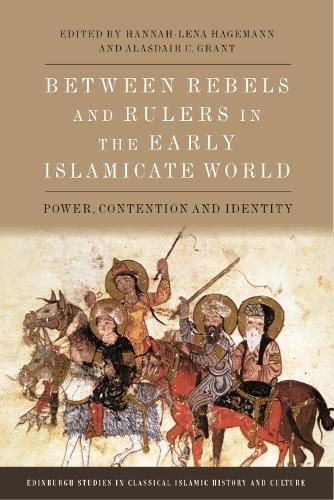Readings Newsletter
Become a Readings Member to make your shopping experience even easier.
Sign in or sign up for free!
You’re not far away from qualifying for FREE standard shipping within Australia
You’ve qualified for FREE standard shipping within Australia
The cart is loading…






Between Rebels and Rulers in the Early Islamicate World offers the first dedicated examination of the phenomenon of rebellion across the early Islamicate world. It combines discourse analysis with a return to long-neglected social-historical analysis in its study of contention and the ways in which it was narrated and enacted. These approaches are pursued through fourteen case studies, ranging geographically from North Africa to Central Asia and chronologically from the sixth to tenth centuries CE. These diverse examples reveal several patterns: First, rebellion operated as a normative means of negotiating power and obtaining justice. Second, the main constituencies of rebellion were local elites, both Muslims and non-Muslims, Arabs and members of pre-conquest societies, separately or together. Accordingly, this volume challenges the 'othering' of rebels found in written sources and reflected in scholarship and reframes them and their discourses as integral parts of an imperial system. Third, social ties provided a framework for the mobilisation of rebellious constituencies and the resolution of conflict.
$9.00 standard shipping within Australia
FREE standard shipping within Australia for orders over $100.00
Express & International shipping calculated at checkout
Between Rebels and Rulers in the Early Islamicate World offers the first dedicated examination of the phenomenon of rebellion across the early Islamicate world. It combines discourse analysis with a return to long-neglected social-historical analysis in its study of contention and the ways in which it was narrated and enacted. These approaches are pursued through fourteen case studies, ranging geographically from North Africa to Central Asia and chronologically from the sixth to tenth centuries CE. These diverse examples reveal several patterns: First, rebellion operated as a normative means of negotiating power and obtaining justice. Second, the main constituencies of rebellion were local elites, both Muslims and non-Muslims, Arabs and members of pre-conquest societies, separately or together. Accordingly, this volume challenges the 'othering' of rebels found in written sources and reflected in scholarship and reframes them and their discourses as integral parts of an imperial system. Third, social ties provided a framework for the mobilisation of rebellious constituencies and the resolution of conflict.